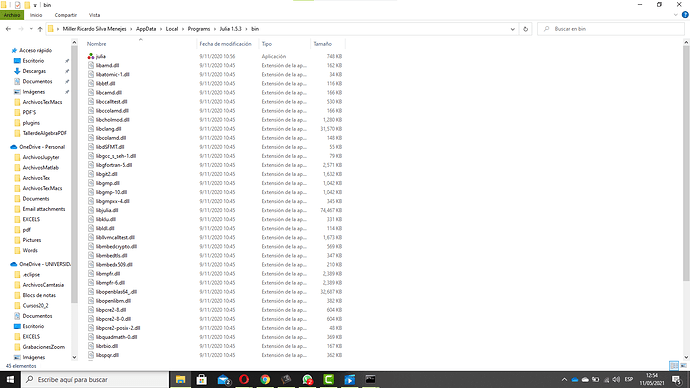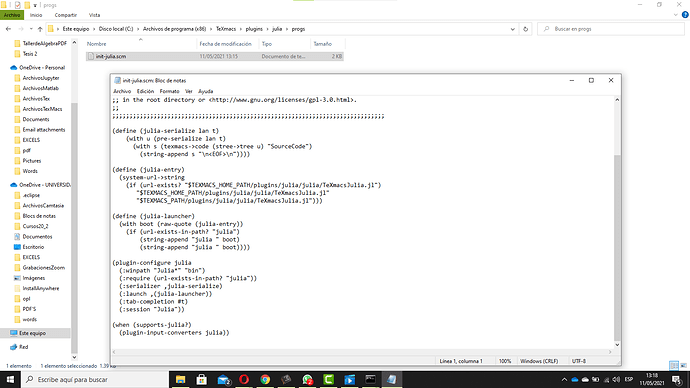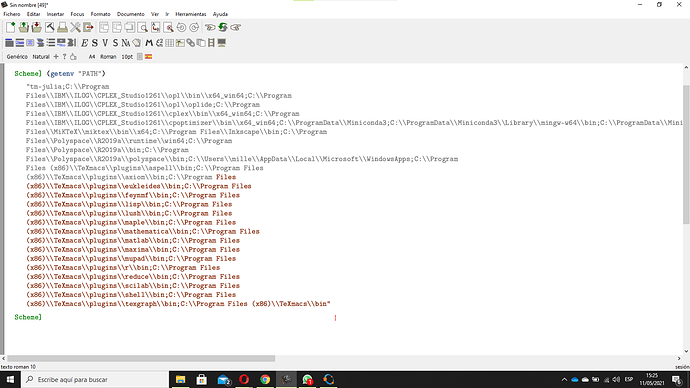It does not work for me too. In my case
(url-exists-in-path? "julia")
#t
(supports-julia?)
#f
In my PATH I have C:\Users\Giovanni\AppData\Local\Programs\Julia-1.6.1\bin in the user part.
Edit:
It works if the folder is put in TEXMACS_PATH\plugins, it does not work in TEXMACS_HOME_PATH\plugins
Edit 2:
Perhaps the reason why it does not work for @MillerSilva is that he does not have the necessary entry in PATH??
Edit 3:
It works on the TEXMACS_HOME_PATH\plugins too. In this case one needs to update the plugins twice (“Tools->Update->Plugins”) (TeXmacs finds new plugins up to the fourth or fifth “Update”)

 ).
).

